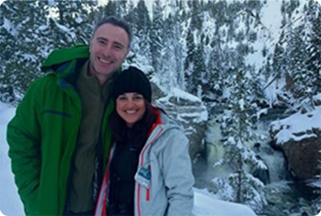
December 9, 2019
Winter Skin Care
Winter Conditions Can Be Hard On Your Skin
Winter Conditions can be hard on your skin. I see a number of patients complaining of dry, itchy skin. Some have a fine rash with red spots that they’ve been told is “Grover’s disease”.
The truth is the winter does bring it’s own set of problems for maintaining healthy skin.
One of the most common presentations I see is itchy rashes on the back, especially the upper part, and occasionally the chest. This “Winter Itch” is actually the result of using excessively hot water in the shower. I’m guilty of doing this myself. As the air in the bathroom gets colder, we keep turning up the temperature of the water in the shower. It feels good while we’re in there, but it really dries out the skin, and after a few days to weeks of using the hotter water, the dreaded “Winter Itch” has set in!
Once I explain this to my patients, they generally do much better. Here’s my recommendations:
- Get a space heater (be safe in positioning in your bathroom) or turn up the heat in your bathroom if you can. Warming up the air will let you turn down the heat in the shower. Take as cool of a shower as you can tolerate and try not to stay in longer than needed.
- Only use gentle soaps. Some of my favorites are: CeraVe, Cetaphil, Olay Ultra Moisture, and Dove. Stay away from strongly scented or botanical soaps, as these can be drying.
- Take a daily Omega-3 supplement. We carry the Omega 3 from Alphaeon, and I’ve been impressed with its ability to help in dry, itch skin. We’ve even had great results in chemotherapy patients who really suffer from dry skin.
- Moisturize! The best time is right after showering. I like AmLactin for the legs and feet. Neutrogena has new product called “Hydro Boost” that I’ve been seeing great results with, and can be used on any part of the skin.
- Vitamin E and D supplementation can be helpful. We can order a blood test to check your vitamin D level before supplementing.
- If you are headed to the mountains, remember that the UV exposure there is different and in some ways, stronger than here at the beach. Stay with Zinc or Titanium-containing sunscreens and reapply frequently. I use the Vertra stick, It’s the same one I use for surfing because it won’t sweat of if I’m boarding, hiking, or snowshoeing.
Have fun engaging in the winter activities and if you’re having any difficulties with your skin come in and we’ll figure it out and come up with a plan to help.
Ross Kaplan, M.D.
